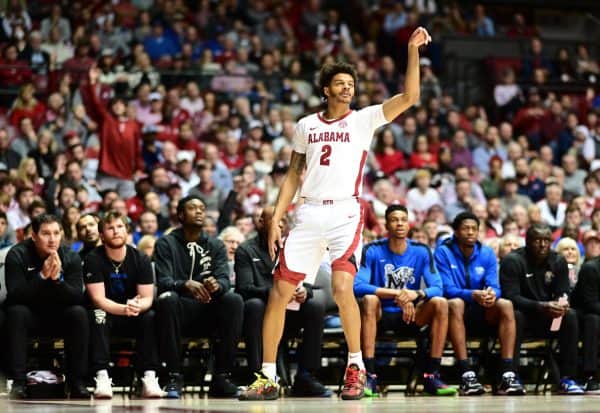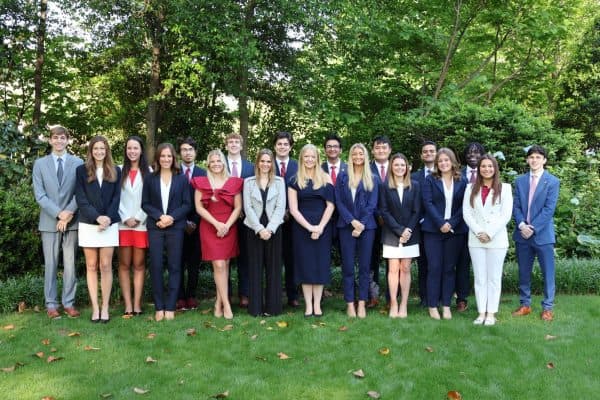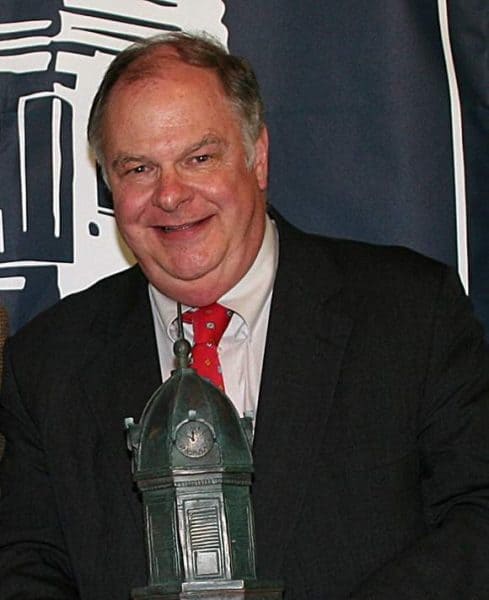Professor dissects Virginia political controversy
February 14, 2019
Shortly after a photo was uncovered of Gov. Ralph Northam wearing blackface in his medical school yearbook on Feb. 2, Virginia Attorney General Mark Herring came out and said he had worn blackface before when impersonating a rapper.
Virginia’s Lt. Governor Justin Fairfax has now been accused of sexual assault by two women. Impeachment proceedings have begun for Fairfax, and citizens of Virginia, as well as Democrats across the nation, are calling for the resignation of Northam and Fairfax.
George Daniels, assistant dean in the College of Communication and Information Sciences, spoke out about the recent accusations against politicians in his home state of Virginia.
Daniels, who teaches a course on race, gender and the media, said the issues in his native state are close to his heart, even though he’s currently a voter in Alabama.
Daniels does not think the problem is that Northam’s actions show him to be currently racist, but rather they show him to be immature in regard to race, and a person who has much to learn should not be representing a racially diverse constituency.
“A person who is going to be elected to the chief executive office of a commonwealth is expected to be at a certain level of education,” Daniels said. “And that means, with that education, you can represent the concerns of all your constituents. In Virginia, I don’t know the exact percentage, but better than a quarter of our residents are African-American. So, if you’re going to represent that segment of your population as a governor, you need to understand the background, the history, of that particular part of your population.”
According to the U.S. Census Bureau, 19.8 percent of Virginia residents are black alone, and 3 percent are two or more races. Daniels said those calling for Northam’s resignation believe he cannot lead the state without sensitivity to its black population.
“You can’t effectively lead if you don’t have a sensitivity to that,” Daniels said. “That is the argument many of those who are calling for his resignation are making. They are saying he doesn’t understand this segment of his population. He can’t effectively lead. That is why people would call for resignation even though this person really just doesn’t understand.”
Daniels said there is a more political influence on the issue.
“I do think that the calls for resignation were motivated primarily by the tenuous position of Democrats in Virginia, and the concern that the party has a certain image to uphold,” Daniels said. “And I don’t think that those calls for resignation are motivated because of their concerns for Ralph Northam. They’re concerned about the image of a Democratic Party and whether that’s going to impact the party’s ability to regain control of the legislature.”
Daniels described why this situation matters in the context of the larger forces at play.
“It really is about holding onto power,” he said. “We learn in political science that politics is about who has the ability to distribute scarce resources, and that ability is based on how many votes you have. If you don’t have those votes, then you’re not able to distribute those scarce resources.”
Despite not having broken any laws, Daniels said Northam is less favorable to voters than he used to be.
“I personally think that for Ralph Northam, it is better for him to address his situation in the role that he is right now if he believes he can have an impact on the overall state,” Daniels said. “He has not broken any laws. He has simply reflected what voters don’t like, and he is not as favorable as he once was. I personally don’t think that there is a reason to step down other than voters don’t want you, and I think voters’ ideas can change depending on the information they have.”
Javoris Johnson, a sophomore majoring in exercise science, said Northam should be given a chance if he pledges to be better going forward.
“If he is promising that he will be better in the future, then we should give him a chance,” Johnson said. “But with this situation, we have to stay mindful of the people we put in office.”
Gus Harper, a sophomore majoring in history and philosophy, said a sincere apology would make up for the mistake Northam made.
“I think, in general, we should take into account the time in which this happened,” Harper said. “Obviously it’s insensitive, but I don’t think there was as much of an air of sensitivity. Now that it’s publicly known, all I would want is for him to sincerely apologize and not try to hide the fact that it happened. I often think more highly of reformed racists than people who were never racist.”











